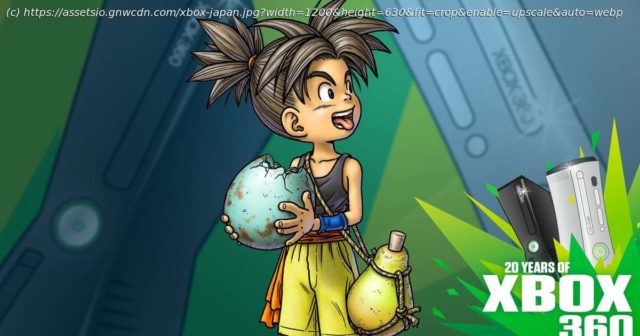There’s something missing from modern Xbox, something we didn’t know we had so good during the Xbox 360 era.
The Xbox business today is pretty unrecognizable from that of 20 years past, which on this week all that time ago was launching the Xbox 360. There’s all the changes to the business, a different suite of executives at the top, and an entirely different first-party portfolio, of course – but when I think of the changes, one absence comes to the forefront of my mind: Japan.
It’s difficult to know what the folks at Xbox were thinking 20 years ago. Did they know that they were about to break the deadlock that had been immovable in the PS2 and original Xbox era? Did they know the success that was coming, even in the face of hardware that’d begin to melt and error out on an industrial scale? The execs of the time would, I imagine, now say that they didn’t know but they could sense they had something special. That old chestnut.
They would say that, of course. But there are things that one could argue show that was definitely their thinking at the time – and one example that sticks out in my mind is Xbox’s aggressive commitment to Japan at this time.
The original Xbox was hardly a storming success in Japan, but despite that, Microsoft went big in the region with its follow-up. In this period, you had an aggressive Xbox making moves in the region. Developers were courted as they always are, but it’s crucial that in this time period much of that courting came to consummation. Deals were inked, with Xbox ultimately signing a tranche of high-profile exclusives or timed exclusives for fans of Japanese games both in the homeland and abroad, and where true exclusive deals failed to materialise Xbox was able to successfully leverage the 360’s head start over PS3 to secure optically valuable ‚defacto‘ exclusives.
Square Enix was approached, for instance, and while it took a while to cough up Final Fantasy it nevertheless spun up a suite of Xbox exclusives – Star Ocean 4, Infinite Undiscovery, and The Last Remnant. While Final Fantasy remained out of reach, Xbox also courted the franchise’s father, now divorced from Square, resulting in Lost Odyssey and Blue Dragon – still two of Xbox’s most unique exclusives.
A little company called FromSoftware, which had already fully supported the original Xbox with games like Otogi, signed up with the likes of Chromehounds and Enchanted Arms. Namco proffered Tales of Vesperia, the criminally underrated Eternal Sonata, and the earth-shakingly good Pac-Man Championship Edition DX. The list goes on. Perhaps most consequential was Capcom, with that particular publisher offering up tentpole promotional exclusives like Dead Rising and Lost Planet, plus the promise of true multiplatform day-and-date releases in franchises like Resident Evil, Devil May Cry, and Street Fighter.
There were the one million troops of Ninety-Nine Nights. Tecmo Koei had Ninja Gaiden and Dead or Alive. Oh, and Konami offered up Bomberman: Act Zero. That one sure made up for the lack of MGS4, yeah.
It goes beyond those big names, though. With its PC-like development environment and a clearly thriving Japanese development relations department, the 360 also quietly became a default platform for stranger, more niche Japanese offerings that for a long time had largely been banished to PC.
Start
United States
USA — software Xbox really committed to Japanese game development in the 360 era, and...






